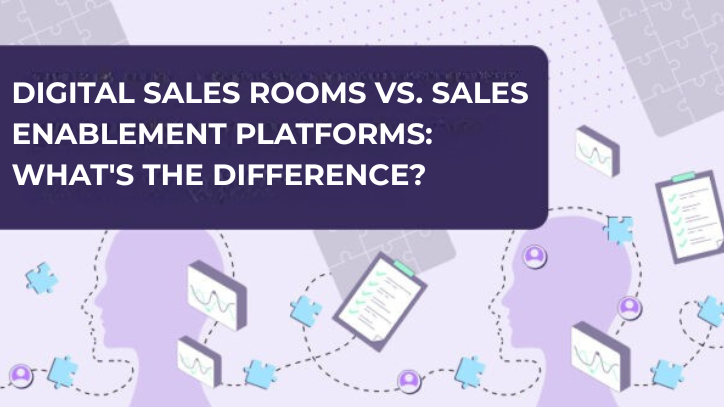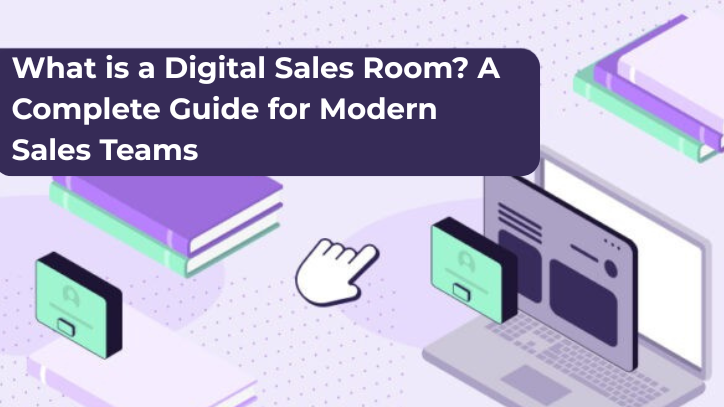Mastering the art of sales funnel management has become paramount in the realm of SaaS sales.
As markets become increasingly competitive and customer expectations continue to evolve, SaaS companies find themselves having to navigate complicated processes to effectively attract, engage, and retain customers.
At its core, sales funnel management serves as the compass guiding businesses through this complex journey, offering insights and strategies to streamline the sales process, optimize conversions, and drive revenue growth.
With this in mind, join us as we break down everything you need to know to effectively manage your B2B sales funnel.
Try Walnut’s interactive sales demos for your sales funnel >
What is sales funnel management?
When we talk about sales funnel management, we are referring to the approach you take to optimize every stage of the customer journey, from initial contact to purchase.
It involves tasks and strategies aimed at evaluating buyer behavior, segmenting leads, personalizing the buying process, and tracking ROI.
At its essence, sales funnel management is about more than just overseeing a linear progression of sales activities. It’s about understanding and responding to the dynamic needs and behaviors of prospects at every touchpoint.
Unlike the traditional depiction of a funnel, a top-to-bottom structure symbolizing the gradual narrowing of leads, the reality of sales funnel management is far more intricate and nuanced.
In today’s digital age, customers embark on non-linear journeys, interacting with brands across multiple channels and platforms. As such, an effective sales funnel management strategy goes beyond mere funnel visualization. It involves leveraging data-driven insights and personalized approaches to tailor the customer experience to individual preferences and pain points.
Sales funnel management stages
Guiding prospects through the sales funnel involves understanding and effectively managing each stage of the buyer’s journey.
Let’s explore the three key stages of the sales funnel and the corresponding strategies for successful sales funnel management:
Top of the Funnel (ToFu): Awareness stage
The top of the funnel marks the awareness stage, where the primary focus is on generating leads and capturing the attention of potential customers.
During this stage, the goal is to introduce prospects to your brand, product, or service and initiate the relationship-building process.
Sales funnel management at the top of the funnel involves implementing various customer engagement tactics to drive awareness and interest. These may include content marketing initiatives, social media campaigns, lead generation forms, email outreach, webinars, and sales prospecting activities.
By providing valuable information and resources, you can establish yourself as an industry authority and nurture prospects from initial contact to further engagement.
Think of the top of the funnel as laying the groundwork for future interactions. By investing in top-of-funnel activities, sales teams and marketers can position their brand prominently in the minds of potential buyers, setting the stage for deeper engagement down the line.
Middle of the Funnel (MoFu): Qualified lead
In the middle of the funnel, prospects have progressed beyond the initial awareness stage and are actively evaluating their options.
At this point, the focus shifts to nurturing leads and providing them with the information they need to make informed decisions.
Middle-of-funnel selling activities include offering product demos, sharing case studies and testimonials, providing price quotes, and offering free trials. Sales teams leverage the interest and engagement generated at the top of the funnel to qualify leads and deliver targeted messaging tailored to the prospect’s specific needs and preferences.
With prospects already demonstrating interest in the company’s offerings, sales reps have an opportunity to deepen the relationship and address any lingering concerns or questions. By providing relevant and compelling content, you can guide prospects through the consideration phase and position your brand as the preferred solution provider.
Bottom of the Funnel (BoFu): Decision and close
At the bottom of the funnel, prospects are nearing the decision-making stage and require additional reassurance and incentives to finalize their purchase.
This stage is characterized by active engagement and a heightened sense of urgency.
Bottom-of-funnel activities focus on facilitating the decision-making process and closing the deal. This may involve contract negotiation, implementing closing techniques, offering price discounts, upselling or cross-selling complementary products or services, and facilitating customer onboarding.
When it comes to the bottom of the funnel, effective communication and personalized engagement are paramount. Sales teams must remain proactive in addressing customer needs and concerns, providing timely support and guidance to expedite the sales process and drive conversions.
While the bottom of the funnel is one of the most important parts of the sales process, to be successful in SaaS sales, it’s essential to optimize each stage of your sales funnel.
Why is sales funnel management important?
Effective sales funnel management is not just about achieving a final conversion. It’s about orchestrating a cohesive journey that guides leads seamlessly from initial contact to becoming loyal customers.
So, let’s dive into the reasons why sales funnel management is crucial for SaaS businesses:
More focused efforts
Sales funnel management provides a structured framework for aligning efforts with the specific needs and behaviors of leads at different stages of the funnel.
By understanding where prospects are in the buying journey, sales teams can tailor their strategies and allocate resources more efficiently.
This targeted approach ensures that time and resources are invested where they are most likely to yield results, optimizing overall sales performance.
Straightforward filtering
A well-managed sales funnel enables businesses to distinguish between high-quality leads and those that are less likely to convert.
By tracking lead behavior and engagement, sales teams can identify and prioritize prospects who demonstrate genuine interest and intent to purchase.
This filtering process allows organizations to focus their attention and resources on leads with the highest potential for conversion, maximizing efficiency and ROI.
Improved strategy
Gone are the days of one-size-fits-all sales strategies.
Sales funnel management empowers businesses to develop tailored approaches that resonate with prospects at each stage of the buyer’s journey.
Whether it’s educating prospects at the top of the funnel or providing personalized solutions to address specific pain points, a well-defined sales funnel strategy ensures that every interaction contributes to moving leads closer to conversion.
This targeted approach increases the likelihood of success and fosters stronger customer relationships.
Accurate forecasting
A structured sales funnel provides valuable insights into lead progression and conversion rates, enabling organizations to make informed sales forecasts with greater accuracy.
By tracking key SaaS metrics and performance indicators at each stage of the funnel, businesses can anticipate future sales volumes and revenue projections more effectively.
This foresight allows for better resource allocation, budget planning, and strategic decision-making, ultimately driving sustainable growth and success.
Challenges in managing your sales funnel
While sales funnel management offers numerous benefits, it also presents a unique set of challenges for sales managers and teams.
Let’s explore some of the common hurdles that you might encounter when it comes to managing your sales funnel:
Striking a balance between outreach and personalization
Achieving a balance between reaching a broad audience and delivering personalized experiences is essential for sales success.
However, finding the sweet spot between quantity and quality can be challenging.
It’s critical to navigate the delicate balance of casting a wide net to capture leads, while ensuring that your approach remains targeted and relevant to individual prospects.
Distinguishing between qualified and unqualified leads
One of the biggest challenges in sales funnel management is effectively identifying and prioritizing qualified leads.
Without clear criteria for lead qualification, sales reps risk wasting time and resources pursuing prospects who are unlikely to convert.
This lack of alignment between sales and marketing teams can lead to inefficiencies and missed opportunities for revenue generation.
Data inconsistencies
Inaccurate or inconsistent data can undermine the effectiveness of sales funnel management efforts.
Siloed data sources, outdated information, and communication gaps between teams can compromise the integrity of sales data, making it difficult to make informed decisions and accurately forecast sales performance.
Addressing data inconsistencies requires a comprehensive approach to data management and collaboration across departments.
Building a sales funnel as an early-stage company
For startups and early-stage companies, establishing a sales funnel management process presents unique challenges.
Limited historical data, resource constraints, and a lack of expertise can hinder efforts to develop an effective sales funnel strategy.
Without a clear roadmap or reference points, early-stage companies must rely on experimentation, customer feedback, and iterative improvements to refine their sales funnel over time.
Implement sales funnel management in your organization
Implementing a robust sales funnel management system is essential for optimizing sales performance and driving revenue growth.
Here are the steps you should take to create a managed sales funnel for your company:
1. Build a sales funnel management plan
In today’s dynamic sales environment, where prospects enter and exit the funnel at various stages, a well-defined sales funnel management plan is crucial.
Sales and marketing teams must collaborate closely to design a streamlined process that aligns with organizational goals and objectives.
This plan should outline clear guidelines for lead segmentation, data analysis, and performance measurement throughout the sales funnel.
2. Train your sales team
Training is key when it comes to ensuring that everyone on the revenue team understands the intricacies of the sales funnel and how to effectively manage it.
Sales reps and marketers should receive comprehensive training on lead generation, lead qualification, and data management practices.
By equipping team members with the necessary skills and knowledge, organizations can improve overall sales effectiveness and drive better results.
3. Find the right leads
Identifying and targeting the right leads is essential for a successful sales funnel management strategy.
Sales and marketing teams should collaborate to develop ideal customer profiles (ICPs) and buyer personas to guide lead generation strategies.
By fostering open communication and feedback loops between teams, organizations can ensure that their marketing efforts are aligned with the needs and preferences of their target audience.
4. Maximize your CRM
A robust CRM system is indispensable for effective sales funnel management.
Your sales team should leverage CRM tools to track and manage leads throughout the sales process, from initial contact to conversion.
That being said, training on CRM usage is crucial to ensure that all team members understand how to leverage its capabilities effectively.
By maximizing the use of CRM technology, organizations can streamline sales operations and improve overall efficiency.
5. Make data king
Data-driven decision making is at the heart of successful sales funnel management.
Organizations should establish clear metrics and KPIs to track sales performance and measure the effectiveness of their funnel management efforts.
Regular review and analysis of sales data are essential for pinpointing trends, identifying areas for improvement, and setting realistic sales goals.
By prioritizing data accuracy and consistency, organizations can make informed decisions that drive business growth.
6. Pay attention to the details
Attention to detail is critical in sales funnel management, as even minor errors can have significant consequences.
From ensuring accurate data entry to refining sales processes, organizations must pay attention to the details that can impact sales outcomes.
Regular sales funnel reviews and optimization efforts are essential for identifying and addressing any issues or inefficiencies. By continuously refining your sales processes, you can maximize the effectiveness of your sales funnel and drive better results.
10 sales funnel management tips to keep leads flowing
To ensure your sales funnel is running smoothly and efficiently, consider these ten indispensable tips:
- Know your audience: Tailor your sales funnel strategy to address the specific needs and preferences of your target audience.
- Create compelling content: Develop engaging content across all stages of the funnel to attract and educate potential customers.
- Implement lead scoring: Focus your efforts on nurturing high-quality leads by assigning scores based on their level of engagement.
- Use email marketing: Utilize personalized email campaigns to keep leads engaged and informed about your products or services.
- Leverage automation: Streamline your processes with sales funnel management tools and automation software.
- A/B testing: Continuously test different elements of your funnel to optimize performance and conversion rates.
- Offer incentives: Provide incentives like discounts or free trials to encourage leads to take action.
- Provide exceptional customer support: Ensure a positive customer experience at every touchpoint of the funnel.
- Analyze data: Regularly analyze sales metrics to identify areas for improvement and optimization.
- Retargeting: Re-engage leads who have dropped off from the funnel with retargeting campaigns.
Use interactive demos throughout the entire sales funnel
Sales enablement platforms are invaluable tools for managing your sales funnel effectively.
Specifically interactive demo platforms (wink, wink).
Interactive demo platforms (like Walnut) let you use interactive demos throughout the entire sales funnel to allow prospects to see your product whenever it works for them.
Not to mention, with Walnut’s Funnel Analysis feature, users can visualize the customer journey through a demo, pinpointing where visitors drop off and why. This data allows for targeted adjustments to improve engagement and conversion rates.
With an interactive demo platform, managing your sales funnel becomes a streamlined and data-driven process, driving better results for your business.





